Visiting Ireland in March has plenty of pros and cons (and I’m basing this on living here for 35 years!).
The weather in Ireland in March starts to improve with the transition from winter to spring. It remains relatively cold with average highs of 10°C/50°F and lows of 4.4°C/39.92°F.
Rain and wind are common as are bright days with around 11 hours of sunshine per day. In Dublin, the long term average temperature in March is 6.7°C/44.06°F.
There are plenty of things to do in Ireland in March, as you’ll discover below (especially if you’re visiting for St. Patrick’s Day).
Some quick need-to-knows about visiting Ireland in March
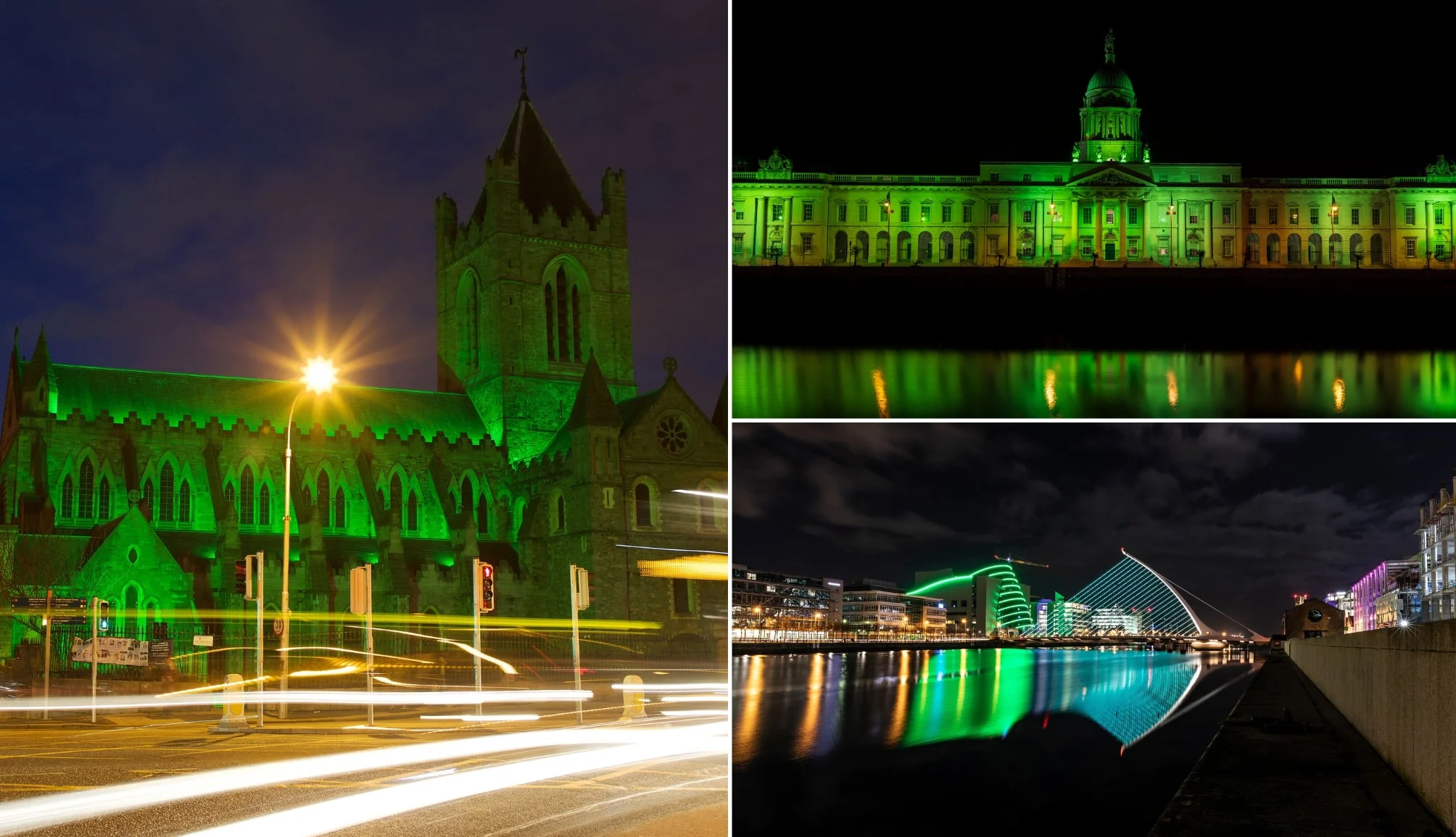
Photos via Shutterstock
Although it’s not the best time to visit Ireland, March has an awful lot going for it. Get up-to-speed nice and fast with the points below:
1. The weather
The weather in Ireland in March can be very unpredictable – in the past, we’ve had heavy snowfall, balmy weather and intense rainfall. However, pack and plan your trip accordingly and you’ll be ready for anything.
2. Average temperatures
The average temperature in Ireland in March hovers at around 6.2°C/43.16°F. Ireland gets average highs of 10°C/50°F and average lows of 4.4°C/39.92°F.
3. Longer days
March marks the beginning of spring in Ireland. The sun rises between 07:12 (start of month) and 06:13 (end of month) and sets at 18:17 (start of month) and 18:49 (end of month). This makes mapping out your Ireland itinerary a little easier, as you’ve a nice bit of daylight to play with.
4. It’s the ‘Shoulder-Season’
March in Ireland is the beginning of the ‘Shoulder-Season’, which is the period of time between the off-peak and peak seasons. While accommodation prices won’t be as low as January and February, they won’t be near peak-season just yet.
5. St Patrick’s Day + events
While there’s an almost endless number of things to do in Ireland in March, it’s St Patrick’s Day that tends to draw the crowds. You’ll find various festivals in Ireland on and in the lead up to ‘Paddy’s Day’ in many towns and villages in Ireland.
The pros and cons of spending March in Ireland

The most common query that we get from people planning a trip to Ireland revolves around the pros and cons of visiting in X, Y or Z month.
For many, the weather in Ireland can play a big part in the overall success of their trip. Below, you’ll find a handful pros and cons of visiting Ireland in March:
The advantages
- Prices: If you’re visiting Ireland on a budget, March tends to be the last month of reduced prices (around St. Patrick’s Day is the exception)
- Weather: March brings with it the start of spring which, for the most part (not always…), results in better weather
- Longer days: The sun rises between 07:12 (start of month) and 06:13 (end of month) and sets at 18:17 (start of month) and 18:49 (end of month)
- Crowds: Ireland’s usually busy attractions will less crowded (the likes of the Cliffs of Moher and the Ring of Kerry will always draw the crowds, though)
The disadvantages
- Weather: Yep, the weather is an advantage and a disadvantage, as you’ll see in our weather section below
- Flights: Flight prices in March tend to be pricer than the previous two months
The weather in Ireland in March in different parts of the country
The weather in Ireland in March varies a lot. Below, we’ll provide you with an insight into the weather in Kerry, Belfast, Galway and Dublin in March.
Note: The rainfall figures and the average temperatures have been taken from the Irish Meteorological Service and the UK Met Office to ensure accuracy:
Dublin
The weather in Dublin in March tends to be milder than previous months, but with just as much rain. The long-term average temperature in Dublin in March is 6.7°C/44.06°F. The long-term average rainfall level for Dublin in March is 52.6 millimetres.
Belfast
The weather in Belfast in March is, on average, historically worse than Dublin. The average temperature in Belfast in March is 6°C/42.8°F. Average rainfall levels sit at 71.37 millimetres.
Galway
The weather in the west of Ireland in March tends to be wetter than the east. The long-term average temperature in Galway in March is 7.1°C/44.78°F. The long-term average rainfall level for Galway in March is 94.7 millimetres.
Kerry
The weather in Kerry in March is similar to the three above. The long-term average temperature in Kerry in March is 8.1°C/46.58°F. The long-term average rainfall level for Kerry in March is 123.8 millimetres.
Things to do in Ireland in March

Photos via Shutterstock
This month starts the ‘Shoulder-Season’, which is the period of time between the peak-season and the off-season. Translation: there’s endless things to do in Ireland in March
If you’re in search of things to do in Ireland in March, jump into our counties in Ireland section – it’s wedged with the best places to visit in every county! Here are a handful of suggestions to get you going:
1. Set off on a well planned road trip
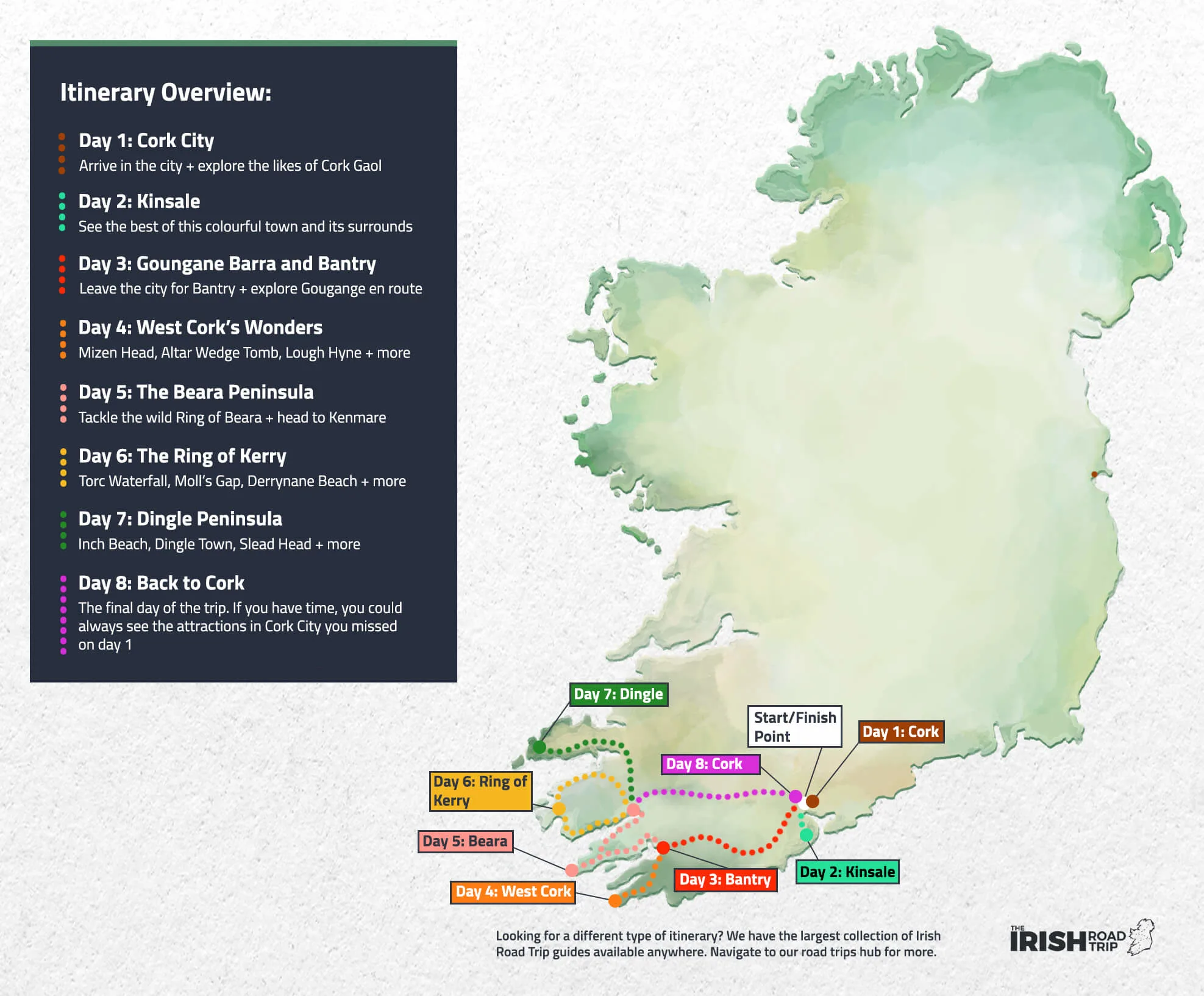
A sample of one of our road trip itineraries
As the days are longer in March, you have more time to explore. However, you still need to map our your Ireland itinerary properly.
The easiest way to do this is to follow a guide – we have the world’s biggest library of Irish road trip itineraries, each of which is 100% free.
Our 5 days in Ireland and our 7 days in Ireland guides tend to be the most popular!
2. Have back-up plans at the ready
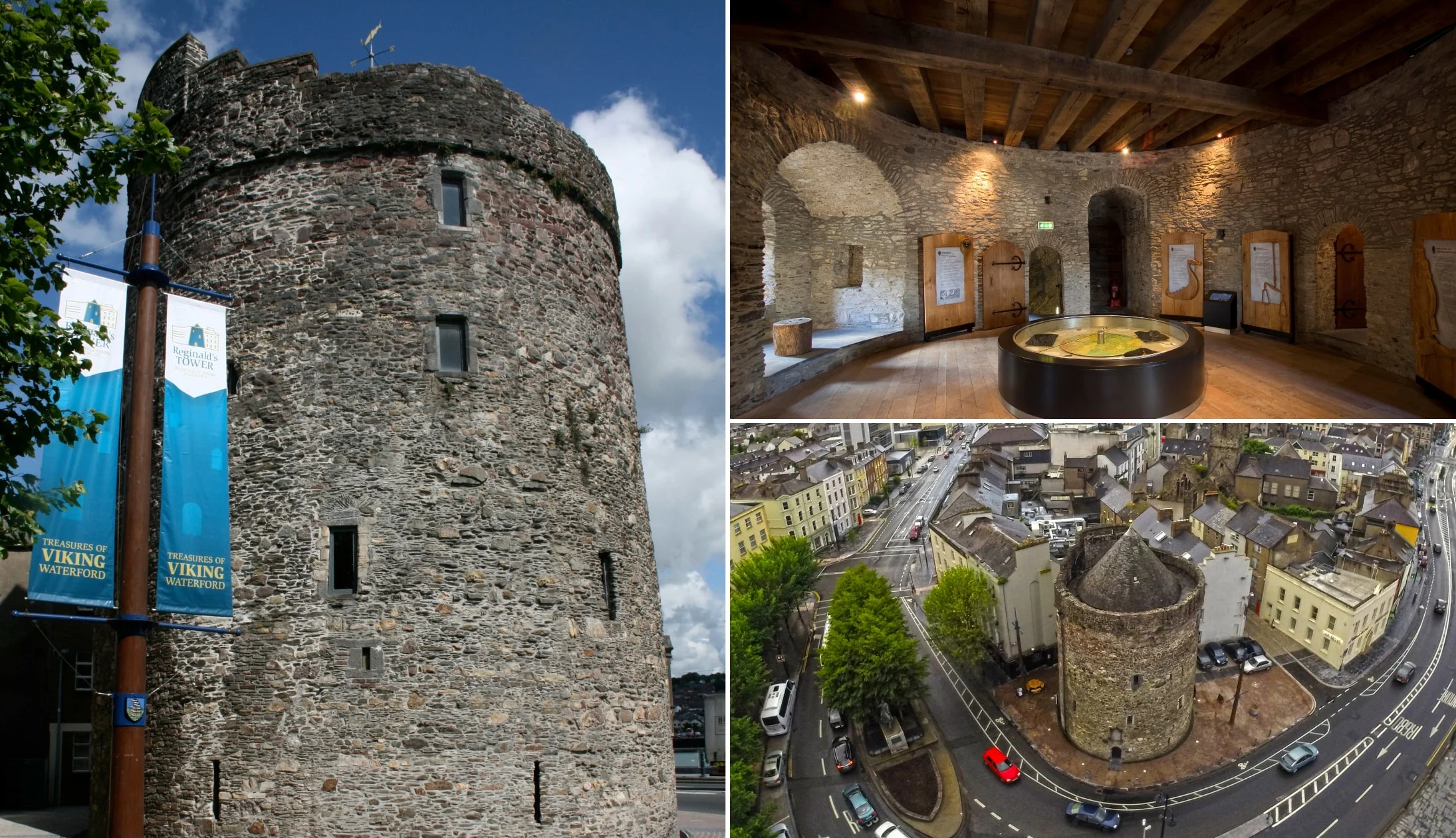
Photos courtesy Waterford Museum of Treasures via Failte Ireland
Although March marks the beginning of spring in Ireland, the weather can still be unpredictable, so it’s worth being aware of indoor attractions near where you’re visiting, just in case.
If you hop into our counties of Ireland hub, you’ll find guides to each county. Each section is packed with both indoor and outdoor attractions.
3. Spend dry days hiking and walking
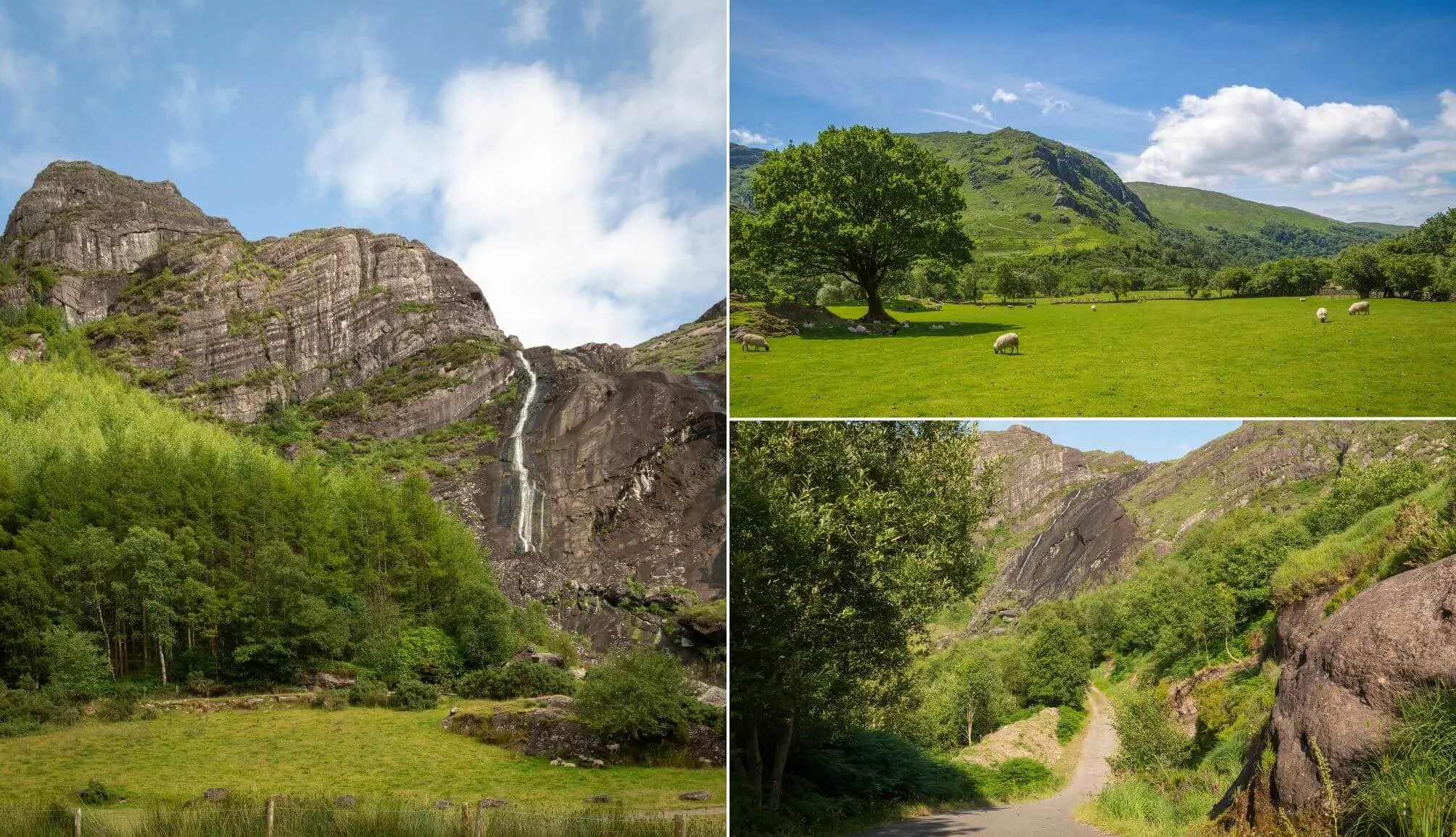
Photos via Shutterstock
If you like to explore on foot, you’re in for a treat – there’s endless walks in Ireland, with a mix of hard and handy trails to tackle, depending on your fitness levels.
Hikes can range from 30 minutes to 8 hours+, so you’ll need to plan accordingly. Find walks in the county you’re visiting right here.
4. And wet nights in a cosy pub

Photos via The Crosskeys Inn on FB
It’s hard to beat a wet and windy night spent in one of the many traditional pubs in Ireland, like the one above (Kavanagh’s in Dublin).
When you can, try and opt for the more traditional/old schools pubs, as these ones tend to have the most charm and character.
5. Visiting Dublin in March
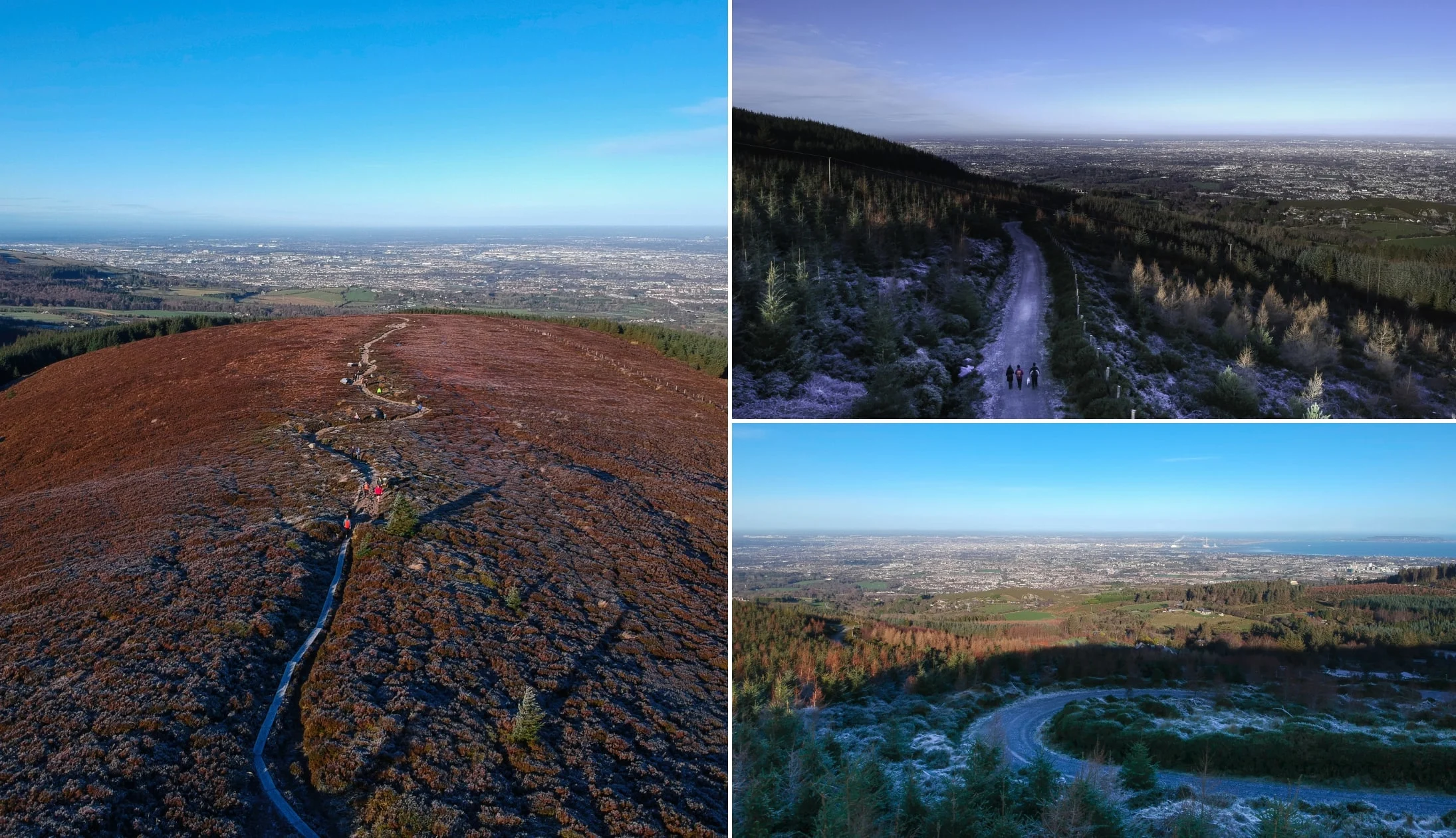
Photos via Shutterstock
There’s loads things to do in Dublin in March. If the weather’s good, head off on one of the many walks in Dublin.
If the weathers crap, there’s plenty of things to do in Dublin in March when it’s pouring down, from castles and incredible food to quirky museums and more.
See our 2 days in Dublin and 24 hours in Dublin guides for an easy-to-follow itinerary.
What to wear in Ireland in March
So, we’ve a handy guide on what to wear in Ireland in March, but we’ll give you the quick need-to-knows below.
March can bring warm and breezy spring days, but if northeast winds dominate, you’ll need to prepare for more bitter temperatures (and possibly even snow).
Pack light layers (long-sleeve t-shirts, hoodies, etc) that you can throw on if it’s cold and remove if it’s warm, along with a water-proof jacket. Here are some other suggestions:
- Hiking boots (or shoes)
- A waterproof jacket
- An umbrella
- Waterproof trousers/pants if you’re planning on doing walking/hiking
- A warm hat, scarf, and gloves
- Plenty of warm socks (there’s nothing worse than walking around in damp socks!)
Debating visiting during another month?
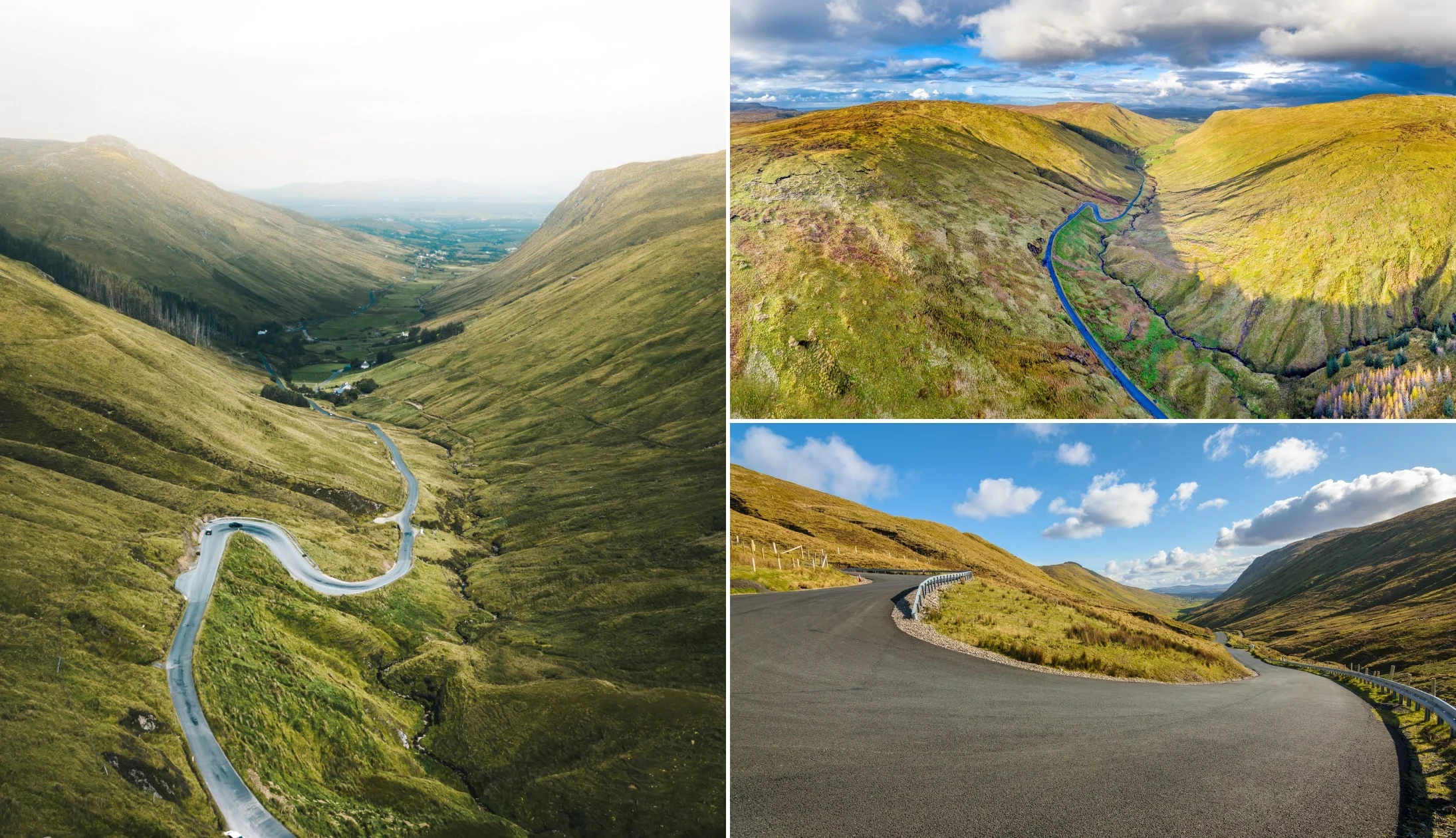
Photos via Shutterstock
Picking when to visit Ireland is tricky, there’s no two ways about it. It’s worth spending some time comparing what it’s like in Ireland during the other months, when you have a second:
- Ireland in January
- Ireland in February
- Ireland in April
- Ireland in May
- Ireland in June
- Ireland in July
- Ireland in August
- Ireland in September
- Ireland in October
- Ireland in November
- Ireland in December
FAQs about spending March in Ireland
We’ve had a lot of questions over the years asking about everything from ‘What are the best things to do in Dublin in March?’ to ‘Does it snow in Ireland in March?’.
In the section below, we’ve popped in the most FAQs that we’ve received. If you have a question that we haven’t tackled, ask away in the comments section below.
Is March a good month for Ireland?
Yes. The days are longer (the sun rises from 06:13 and sets from 18:17) and the weather tends to be mild, with average temperatures of 10°C/50°F.
Are there many things to do in Ireland in March?
Thanks to the longer days, you’ve plenty of time to explore, with everything from hikes and museums to castle, scenic drives, incredible restaurants and more awaiting your arrival.
Is the weather in Ireland in March terrible?
Yes and no, as is the case with every month in Ireland. In March, we’ve seen snow, wind and hail, however it does tend to be much milder (see weather section above).
Keith O’Hara has lived in Ireland for 35 years and has spent most of the last 10 creating what is now The Irish Road Trip guide. Over the years, the website has published thousands of meticulously researched Ireland travel guides, welcoming 30 million+ visitors along the way. In 2022, the Irish Road Trip team published the world’s largest collection of Irish Road Trip itineraries. Keith lives in Dublin with his dog Toby and finds writing in the 3rd person minus craic altogether.



Jon LeFeber
Saturday 25th of February 2023
Wonderful suggestions and pics, looking forward to seeing Ireland in March!
Thanks for your ideas and suggestions!
Evelyn Hazzard
Tuesday 10th of January 2023
What an amazing site!
Bethany
Saturday 26th of November 2022
I’m a few years late to comment, but I came across your article and found it very helpful! My family is visiting Ireland in early March. Visiting Ireland is a lifelong dream for me, so I’ll take whatever weather comes! We are road tripping the south/west. (Kilkenny, Cork, Killarney, Doolin, etc.) as countryside and different towns are our favorite places to visit.
We are planning on wearing sneakers, and bringing along waterproof duck boots for the rainy/muddy days. Is that a good plan? I didn’t want to buy and pack 5 pairs of actual rain boots, since we like to pack light. We have our waterproof jackets and layers. Can’t wait!!
Keith O'Hara
Monday 28th of November 2022
Thanks for the kind words, Bethany! The weather in March in Ireland can be a funny one alright. If you're planning on walks and hikes any form of waterproof shoe with good grip and support will be more than enough, and it sounds like your covered (terrible pub, I know...) for all of the waterproof gear. I hope the trip goes well - shout if you need! Keith
Kris
Sunday 8th of March 2020
We visited Ireland in March twenty years ago, had beautiful weather, and always said we will go back. We drove around the south last time. This time we are taking buses, trains and local tours to see some of the north. We will arrive in Dublin on March 17, in the wee hours of the morning, and will go directly to Galway in time to see their parade. I've heard Dublin is a zoo on St. Patrick's Day, so we're headed elsewhere for the festivities. All of this depending on the coronavirus and its effects. Do you have any information on that situation in Ireland? Are events, tours, or popular sights being cancelled or closed?
Michael Tomalaris
Monday 2nd of March 2020
Hi Kieth. We're landing in Dublin at 6.30am on the morning of St Patrick's Day and staying until the end of the month. Accommodation has been booked for the first three nights in Dublin before driving around the entire island. Do you recommend we consider staying in B&B type accommodation, pubs in quaint towns and villages or established motels? Also, are pubs the best places to eat a good hearty meal or would you we also advise dine in restaurants?
Keith
Wednesday 4th of March 2020
Hi Michael,
Sounds like you've an unforgettable trip ahead of you!
When it comes to accommodation, I tend to pick places based on the budget that I have to play with. There are some excellent B&Bs and Hotels in Ireland. There are, like everywhere else in the world, some terrible ones, also.
I find that looking at Booking.com reviews and Google reviews gives a solid insight into what a place is like.
You'll find that B&Bs tend to be cheaper. The experience, in certain B&Bs, can also be much more memorable (you tend to meet people that have run the same B&B for decades and that are full of stories!).
On the food question, the honest (and pretty unhelpful) answer is "it depends'. You'll find that in some towns the best food on offer is from the local pub.
In others, you'll be better off in a cafe or hotel restaurant. Again (sorry, I'm sure I sound like a broken record here!) Google reviews is your friend in thi situation.
I hope my rambling has been of some help. Have a lovely trip.
Cheers,
Keith